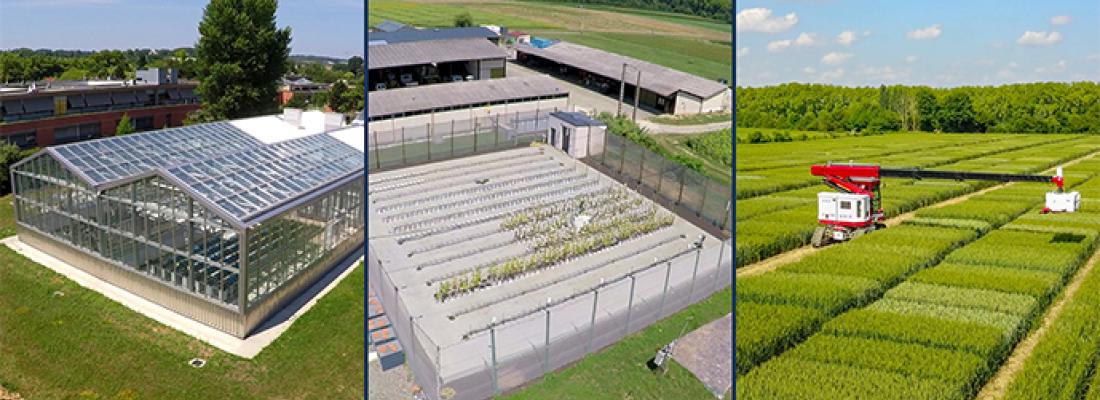Agroecology Reading time 2 min
From the greenhouse to the field, an automated plant phenotyping infrastructure
Published on 06 November 2019

The plant phenotyping activities at INRAE Occitanie-Toulouse center are now grouped under a common identity: PhenoToul. This new infrastructure meets the current and future challenges of agro-ecology and cropping systems, whilst taking into account climate change.
To this end, it offers a multi-scale approach via 3 platforms:
- From a fully controlled greenhouse (TPMP – Toulouse Plant Microbe Phenotyping) to measure the impact of changing environmental conditions on plant performance and their interactions with microbes.
- Through the semi-controlled outdoor platform (HeliaPhen) to study individual plant responses to drought.
- To field (AgroPhen) to analyze crops under different climatic conditions and cultivation methods
All these various non-destructive analyses are carried out using cameras mounted on automated phenotyping tools: robot, drone and phenomobile.
PhenoToul wants to improve its service offer to laboratories and partners by developing expertise in image processing (LiDAR, multispectral acquisition) and data processing pipeline.
Ultimately, PhenoToul's objective is to be a provider of an integrated phenotyping service at the national and international levels.
Phenotoul was funded by the European Regional Development Fund (ERDF), the Ministry of Higher Education and Research, the Occitanie Region, Sicoval and INRAE. PhenoToul's three platforms are part of the Phenome-Emphasis network.
The platform's sectors:
- Agriculture, Agronomy, Plant Science
- Ecology and Environment
- Image analysis and processing
Access procedures:
- Platform open to the entire public and private scientific community
- Contact by email at phenotoul@inrae.fr
Inra Occitanie-Toulouse units involved in PhenoToul:
